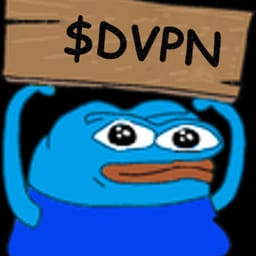Sir Tim Berners-Lee, renowned as the inventor of the world wide web (WWW), envisioned the internet as a platform fostering creativity and collaboration. However, over the past two decades, the trajectory of the web has taken a concerning turn, particularly regarding the handling of personal data.
The prevalent model, where data is confined within individual websites upon logging in, restricts users' control and ownership over their own information. Recognizing this challenge, innovative solutions are emerging to reshape the digital landscape.
Personal ownership of Data
At the heart of this solution lies a fundamental principle: individuals should have sovereignty over their data. This approach introduces the concept of Personal Online Data Stores (Pods), providing users with a centralized repository where they retain full authority to dictate which organizations can access their data, the purpose for which it is accessed, and the duration of access.
This paradigm shift, as advocated by Sir Tim Berners-Lee, decentralizes data storage, placing individuals, rather than applications, at its core.
Decentralized Data Management
Several entities are contributing to the development and deployment of decentralized data management solutions, signalling a growing momentum toward a more privacy-centric digital ecosystem.
Belgium-based initiatives exemplify the transformative potential of decentralized data management in real-world applications. Established to drive economic recovery post-Covid-19, these initiatives serve as neutral intermediaries facilitating data exchange among businesses and citizens. Through collaborations with various sectors, streamlined processes have been achieved, empowering individuals to exert greater control over their personal data.
Moreover, decentralized data management's impact extends beyond the realm of recruitment to encompass healthcare and media sectors. In healthcare, institutions are exploring decentralized data stores to facilitate seamless sharing of medical records, empowering patients to manage and share their health data with unprecedented ease. Similarly, media companies are leveraging decentralized data management to enhance personalization while safeguarding privacy.
Secure Decentralized Browsing with VPN
Decentralized Virtual Private Networks (VPNs) are playing a pivotal role in empowering users to manage and assert control over their data in the digital realm. Unlike traditional VPN services that rely on centralized servers, decentralized VPNs leverage distributed infrastructure, thereby eliminating single points of failure and reducing susceptibility to surveillance and data breaches.
By encrypting and routing internet traffic through a network of nodes operated by individuals rather than centralized entities, decentralized VPNs enable users to shield their online activities from prying eyes and reclaim ownership of their data.
This decentralized architecture not only enhances privacy and security but also affords users greater autonomy over their digital footprint, aligning with the broader ethos of data sovereignty and individual empowerment. Through decentralized VPN services, users can navigate the internet with confidence, knowing that their data remains under their control, free from the pervasive surveillance and data harvesting prevalent in centralized systems.
Benefits of Decentralization
The key strength of decentralized data management lies in its interoperability and standardization, enabling data stored in Pods to be seamlessly integrated across diverse applications. This interoperability fosters a data economy where disparate data elements can be combined to unlock novel use cases, thus driving innovation and value creation.
Crucially, decentralized data management offers enhanced security compared to traditional centralized databases. By distributing data across individual Pods, each governed by user-defined access controls, decentralized data management mitigates the risk of large-scale data breaches. This distributed architecture reduces the attractiveness of Pods as high-value targets for hackers, thereby enhancing overall cybersecurity posture.
The Move to Decentralization
However, the transition to a decentralized data paradigm necessitates a shift in user behavior and mindset. As individuals assume greater responsibility for managing sensitive data, robust education and awareness initiatives are imperative to promote cybersecurity best practices. Encouragingly, research indicates that citizens are receptive to decentralized data management, particularly when they perceive tangible benefits such as time and cost savings.
Looking ahead, the widespread adoption of decentralized data management has the potential to catalyze a data revolution, fundamentally reshaping existing business models. By empowering individuals as data controllers, decentralized data management heralds a new era of digital empowerment and privacy protection. This represents a paradigm shift where the data subject assumes rightful control over their digital footprint, ushering in a future where privacy is not merely an aspiration but a fundamental human right.
The Future Role of Decentralized VPN services
In this landscape, companies like Sentinel, which provide decentralized VPN services, play a crucial role in safeguarding individual privacy. By leveraging decentralized infrastructure, Sentinel offers users a secure and private means of accessing the internet, free from centralized surveillance and data harvesting.
Through initiatives like Sentinel, the collective pursuit of privacy and data sovereignty gains further momentum, paving the way for a more equitable and resilient digital ecosystem.
Final Thoughts
In conclusion, decentralized data management represents a transformative step towards a more privacy-centric and user-empowered digital future. By placing individuals at the center of data governance, decentralized data management not only enhances privacy and security but also fosters innovation and collaboration.
As we navigate the complexities of the digital age, the principles embodied by decentralized data management offer hope of a future where the web truly fulfills its original promise of creativity and collaboration, guided by principles of privacy and empowerment.


Follow Sentinel Independent News
Join Our Journey
At dVPN.news every member of the Sentinel community is a contributor. Whether you're writing articles, sharing tutorials, or participating in discussions, your involvement is what drives our collective growth, and best of all it's rewarded!
Together, so if you to contribute to the growth of the Sentinel Network, you are in the right place!
Connect with Us
Stay in touch and be part of our growing community:
- Follow Sentinel on X (Twitter)
- Follow The Growth DAO on X (Twitter)
- Join The Growth DAO community Telegram Group



